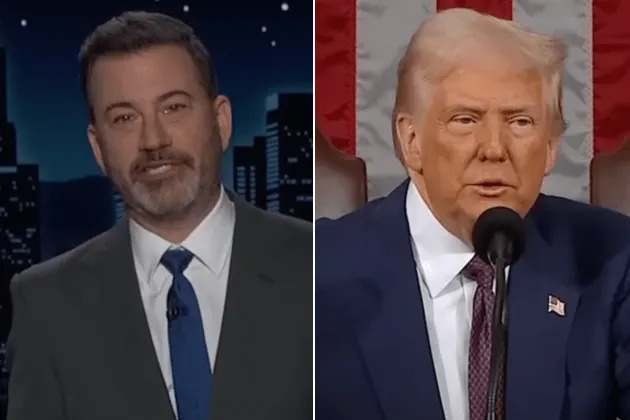Jimmy Kimmel Roasts Trump for Claiming Biden Spent ‘$8 Million on Making Mice Transgender’: ‘Are They So Dumb They Don’t Know How to Google?’

During the March 5 episode of his ABC late-night talk show, Jimmy Kimmel delivered a scathing critique of Donald Trump’s recent congressional address, zeroing in on one of the former president’s most outlandish claims: that the Biden administration had spent “$8 million on making mice transgender.” Kimmel dismantled the assertion with a mix of incredulity and humor, labeling it a blatant falsehood. “No, it’s not real,” he emphasized, addressing Trump’s insistence that the claim was factual. The host dissected the origins of the misinformation, explaining that the referenced funds were part of legitimate scientific research involving transgenic mice—a term Trump either misrepresented or misunderstood. These genetically modified mice, Kimmel clarified, are used in laboratories to study diseases such as dementia, heart conditions, and other critical health issues. “The only ‘trans’ here is in the word ‘transgenic,’ which refers to genetic modification—not gender identity,” he quipped, highlighting the absurdity of conflating the two concepts.
Kimmel speculated on the motives behind Trump’s repeated falsehoods, questioning whether the former president and his allies were deliberately twisting terminology to mislead the public or simply lacked the curiosity to fact-check their own rhetoric. “Do they think we’re too dumb to Google?” he asked, mocking the manipulative tactics. To underscore the ludicrousness of the claim, Kimmel joked, “They’re turning Mickeys into Minnies and Minnies into Mickeys!”—a playful nod to Disney characters that underscored the nonsensical nature of the accusation. He further quipped that Trump should theoretically support such research, given its focus on combating dementia and heart disease, ailments Kimmel sarcastically suggested were “coming for [Trump] real soon.”
The segment also addressed the broader context of Trump’s speech, which drew an average of 36.6 million viewers, surpassing Joe Biden’s 2024 State of the Union address (32.2 million viewers) but falling short of Trump’s own 2017 record of 47.7 million viewers. Kimmel juxtaposed Trump’s theatrical delivery with the factual inaccuracies woven into his rhetoric, framing the former president’s approach as a blend of spectacle and deception. The host emphasized that while Trump’s speeches often attract attention, their reliance on misinformation undermines their credibility.
Fact-checking organizations, including CNN, corroborated Kimmel’s rebuttal, clarifying that the $8 million figure Trump cited was tied to studies examining how cross-sex hormone therapy—a treatment used by some transgender individuals—affects the efficacy of HIV vaccines in mice. These experiments, conducted by the National Institutes of Health (NIH), were designed to improve medical understanding of how hormone therapies interact with vaccines, ultimately aiming to enhance healthcare outcomes for humans. Researchers stressed that the studies were never about “making mice transgender,” as Trump claimed, but about ensuring safe and effective treatments for people undergoing gender-affirming care. The mice in question were genetically altered to model human immune responses, a common practice in medical research to predict how therapies might function in humans.
Kimmel’s monologue also touched on the dangers of politicizing science, arguing that misrepresenting research to stoke culture-war debates erodes public trust in institutions. By framing the NIH’s work as a frivolous effort to “transition” rodents, Trump’s narrative, Kimmel suggested, distracts from legitimate scientific inquiry and fuels baseless conspiracy theories. The host urged viewers to critically evaluate sensational claims, particularly those weaponized to attack marginalized communities or undermine bipartisan priorities like medical advancement.
The episode concluded with a broader reflection on the state of political discourse, as Kimmel lamented the normalization of lies in public life. He criticized Trump’s tendency to blur reality with fiction, a tactic he argued manipulates supporters and muddies democratic accountability. “When the president says something this stupid, it’s not just a joke—it’s a problem,” Kimmel asserted, calling for greater media literacy and accountability in an era where misinformation spreads rapidly.
By dissecting Trump’s remarks with a combination of wit and factual rigor, Kimmel’s segment exemplified the role of late-night comedy in bridging entertainment and public education. The monologue not only debunked a viral falsehood but also underscored the importance of transparency in science and the need to defend empirical truth in political debates.
